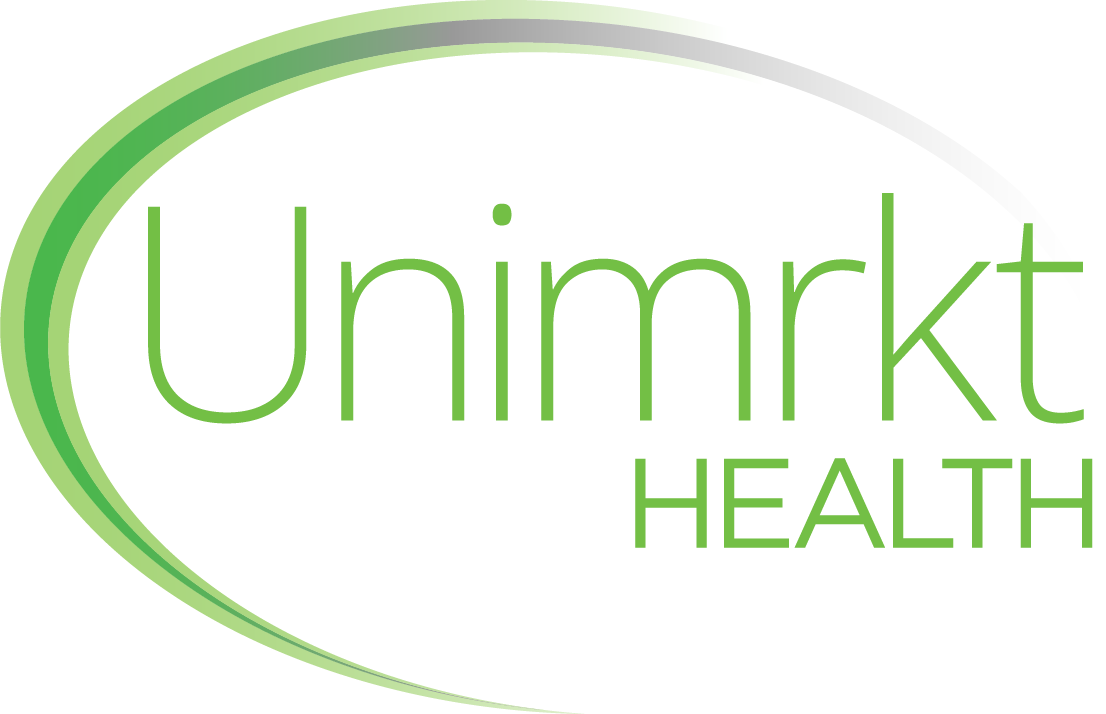The Popularity of Weight-loss Drugs: A Big Opportunity in Waiting?
- Unimrkt Healthcare » Blog » The Popularity of Weight-loss Drugs: A Big Opportunity in Waiting?
With global obesity rates soaring, weight-loss drugs offer a beacon of hope for millions. These drugs, designed to curb appetites and mitigate health problems associated with obesity, bring forth a significant opportunity in the healthcare market. Digital health providers are increasingly recognizing the potential of these medications as part of comprehensive health strategies and solutions. However, the rise of strategic healthcare solutions for weight loss also present challenges for industries reliant on consumer cravings. In today’s blog, we will explore the growing popularity of weight-loss drugs, the drivers behind their success, and the potential long-term implications, including how digital solutions for healthcare providers are adapting to this evolving landscape. Let’s get started!
The Haunting of Mass Obesity
Obesity is a pervasive and escalating problem, casting a long shadow over global health. In the U.S. alone, obesity rates have climbed from 12% in 1975 to a projected 58% by 2035, reflecting a dramatic and troubling increase. Globally, the figures are similarly alarming, with rates expected to reach 24% by 2035. This surge in obesity is not just a statistic but a severe public health crisis. The health implications are profound, contributing to a rise in chronic conditions such as diabetes, heart disease, and certain cancers. These conditions not only diminish the quality of life but also place a tremendous burden on healthcare systems worldwide. The epidemic underscores the urgent need for effective weight-loss solutions, driving interest and investment in weight-loss drugs. As part of a broader approach, strategic healthcare solutions are being developed to address this crisis, combining medical, digital, and behavioral interventions to combat obesity effectively. The integration of these solutions into healthcare strategies is critical to reversing the trend and improving health outcomes on a global scale.
The Rising Demand for Weight-loss Solutions
The demand for weight-loss solutions is rising in tandem with obesity rates, reflecting a growing public awareness of the health risks associated with excess weight. As people become more health-conscious, they seek effective methods to manage their weight and improve their overall well-being. Weight-loss drugs offer a compelling solution by helping individuals reduce their food intake and manage their weight more effectively. These drugs, by curbing appetite and promoting a feeling of fullness, address one of the fundamental challenges in weight management. The market potential is vast, with estimated annual sales of these drugs reaching $100 billion. That’s a significant opportunity for pharmaceutical companies and investors. This burgeoning demand can be monetized by integrating weight-loss drugs into strategic healthcare solutions, ensuring they are accessible and part of comprehensive health strategies. The growth in this market is a sign of a broader trend towards proactive health management and the pursuit of innovative solutions to combat the global obesity crisis.
Recent Trends in Weight-Loss Medication
GLP-1, or glucagon-like peptide-1, is a hormone that plays a critical role in regulating appetite and insulin secretion. Pharmaceutical companies are harnessing this hormone’s potential through the development of GLP-1 receptor agonists, a class of medications that mimic the effects of natural GLP-1. These drugs work by stimulating insulin release, inhibiting glucagon secretion, and slowing gastric emptying, all of which contribute to reduced food intake and improved blood sugar control. Companies like Novo Nordisk and Eli Lilly are at the forefront of this research, developing drugs such as Ozempic, Wegovy, and Zepbound, which have shown promising results in both weight loss and diabetes management. Additionally, these companies are experimenting with next-generation GLP-1 therapies that could potentially offer even greater efficacy and convenience, including oral formulations and combination therapies.
Key Drivers Behind the Popularity of Weight-loss Drugs
Several factors are fueling the popularity of weight-loss drugs:
- Medical Advancements: Innovations in the pharmaceutical industry have significantly contributed to the development of effective weight-loss drugs. These advancements have produced medications that target specific biological pathways to curb appetite and facilitate weight loss. For instance, GLP-1 receptor agonists such as Ozempic, Wegovy, and Zepbound work by mimicking the hormone GLP-1, which helps regulate appetite and food intake. These drugs not only slow down gastric emptying but also enhance insulin release, providing a multifaceted approach to weight management. The precision and efficacy of these medications represent a significant leap forward in obesity treatment, making them highly attractive options for individuals struggling with weight loss.
- Marketing and Awareness: The rise in popularity of weight-loss drugs is also driven by increased marketing efforts and heightened public awareness. Pharmaceutical companies have invested heavily in advertising campaigns that highlight the benefits and effectiveness of their products. This has been complemented by a surge in educational content aimed at informing the public about the health risks associated with obesity and the potential benefits of weight-loss medications. As a result, these drugs have become more visible and accessible, breaking down barriers that previously prevented people from seeking medical assistance for weight management. This concerted effort to raise awareness has played a crucial role in boosting the acceptance and adoption of weight-loss drugs.
- Social Influences: The influence of celebrities and social media cannot be understated in the popularity of weight-loss drugs. High-profile endorsements from celebrities who have publicly shared their success stories with these medications have significantly increased their appeal. Social media platforms amplify these endorsements, reaching millions of people and shaping public perception. Influencers and everyday users sharing their weight-loss journeys create a ripple effect, encouraging others to explore these options. The power of social proof, combined with the aspirational nature of celebrity culture, has made weight-loss drugs a trendy and socially acceptable solution for managing weight.
- Health Benefits: Beyond their primary function of aiding in weight loss, these drugs offer a range of additional health benefits that make them particularly attractive. For instance, GLP-1 receptor agonists have been shown to improve insulin sensitivity, which is crucial for managing type 2 diabetes. They also reduce the risk of obesity-related conditions such as cardiovascular disease, high blood pressure, and certain types of cancer. The comprehensive health benefits provided by these medications make them a valuable tool not just for weight management, but also for improving overall health outcomes. This multifaceted impact on health significantly enhances their appeal and justifies their use among a broader population.
- Behavioral Changes: One of the intriguing aspects of weight-loss drugs, particularly GLP-1 receptor agonists, is their impact on behavior beyond food consumption. Users often report reduced cravings not only for food but also for other addictive substances such as alcohol and cigarettes. This effect is believed to be linked to the action of these drugs on brain regions involved in stress response, reward, and reinforcement. By diminishing the pleasure derived from these substances, weight-loss drugs can potentially lead to broader lifestyle changes that contribute to improved health and well-being. This unexpected benefit further increases their value and attractiveness to individuals looking to make comprehensive changes to their lifestyle.
What to Expect in the Long Term
The long-term outlook for weight-loss drugs is promising but complex. As more people adopt these medications, we may see a significant impact on public health, including reduced incidence of obesity-related diseases. However, questions remain about the sustainability of weight loss, the potential side effects, and the economic implications. The pharmaceutical industry must continue to innovate, developing more effective and safer drugs to maintain consumer trust and achieve lasting results. Moreover, the ripple effects across various sectors, including healthcare, food, and insurance, will need careful monitoring. The regulatory landscape will also play a crucial role in shaping the future of these drugs. Healthcare market research can play a crucial role in addressing these uncertainties. By conducting comprehensive studies, researchers can monitor the effectiveness of weight-loss drugs over extended periods, assessing factors such as patient adherence, long-term health outcomes, and economic impacts on healthcare systems. Insights from market research can inform pharmaceutical companies on where to innovate and improve, ensuring that these drugs meet the needs and expectations of patients and healthcare providers alike. Moreover, market research can provide early signals of emerging trends and challenges, helping regulatory bodies adapt and refine guidelines to support safe and effective use.
Final Word
Weight-loss drugs are a significant breakthrough in the fight against obesity, offering hope to millions and presenting a lucrative opportunity for investors. However, their success hinges on continued innovation, effective regulation, and the ability to address both health and market challenges. Thankfully, with ongoing research and development, the potential for these drugs to revolutionize weight management and associated health conditions remains substantial. As it stands, the importance of strategic healthcare solutions and the role ofdigital solutions for healthcare providers cannot be ignored. If you are looking for someone with an impeccable track record of conducting market research in medicine and healthcare, look no further than Unimrkt Healthcare. Throughout the years, we have consistently applied scientifically validated methodologies for research in the health industry, ensuring the delivery of actionable data through meticulous targeting of respondents. To learn more about how we can help you with your market research endeavor, call +91-124-424-5210, +91-9870-377-557, or email sales@unimrkthealth.com. You may also fill out our contact form, and our team of experts will assist you as soon as possible.
Recent Posts
- 10 Medical Online Survey Mistakes You Must Leave Behind in 2025
- How Qualitative Healthcare Research Can Accelerate Ethical AI Adoption
- Trust as a Growth Strategy: What Healthcare Leaders Can Learn From Business Market Analysis
- Mapping the Healthcare Value Chain: A Market Research Perspective
- Decoding Emotional Triggers in Treatment Choices: A Qualitative Approach
Archives
Quick Enquiry
Customer Service, We Make it Better
Related Posts:
Let's Connect
Please, fill in the form to get in touch!



